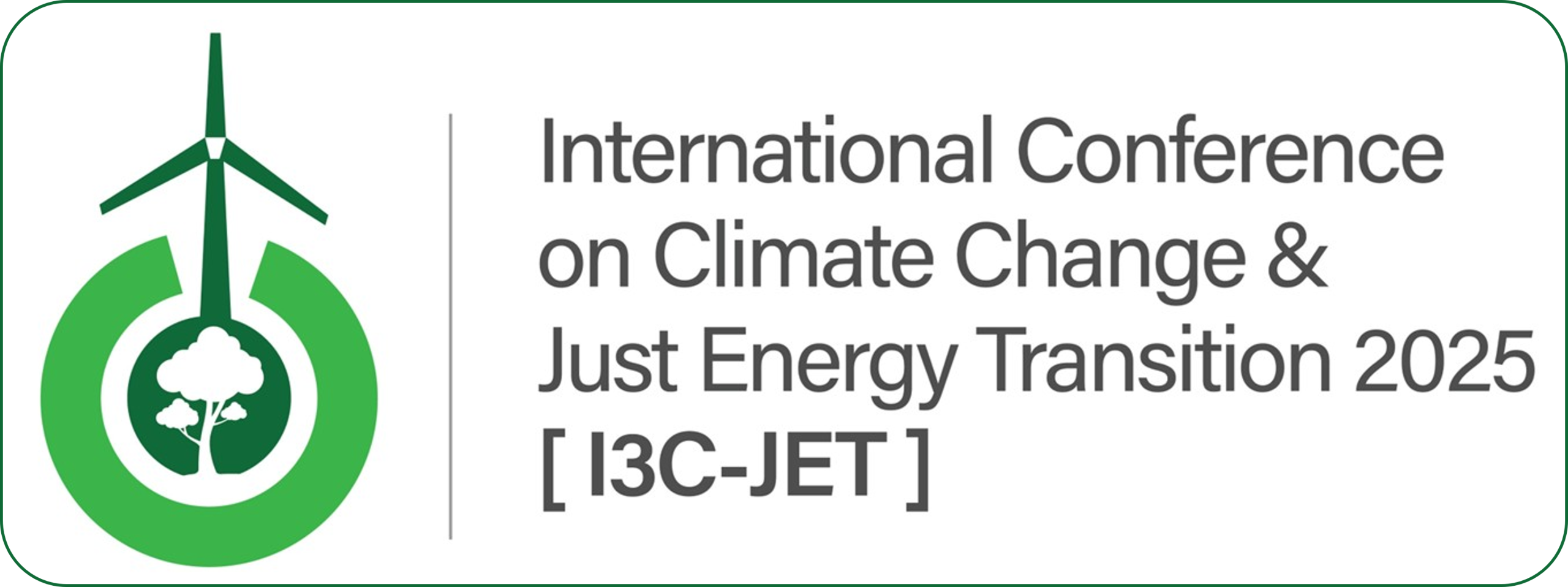
background
Africa is among the regions most vulnerable to the adverse impacts of climate change. Rising temperatures, erratic rainfall patterns, droughts, floods, and sea level rise threaten food and water security, livelihoods, ecosystems, and the overall wellbeing of communities. These challenges place immense pressure on governments, communities, and development stakeholders to build resilience and safeguard hard-won development gains (IPCC, 2022).
Achieving sustainable climate resilience in Africa requires a multi-faceted and holistic approach that integrates cutting-edge research, innovative technologies, supportive policies, adequate financing mechanisms, and gender-equitable practices.
Addressing existing technology and data gaps is equally critical to ensuring that local communities can actively participate in and benefit from climate resilience initiatives. The lack of accessible and affordable climate observation and data instruments often hampers accurate weather prediction, early warning systems, and informed decision-making, particularly in vulnerable rural areas (WMO, 2023).
Moreover, achieving impactful and scaled-up solutions necessitates consolidated and streamlined national and regional policies. Coordinated governance frameworks across Africa can enhance the effectiveness of climate actions by ensuring alignment of efforts, reducing redundancies, and addressing transboundary challenges such as shared water resources, migratory patterns, and ecosystem management. Streamlining policies also allows for the harmonization of funding priorities, fostering a more cohesive regional response to climate challenges (ECOWAS, 2020; Boko et al., 2007).
In addition, innovative climate financing schemes and models are essential for mobilizing the resources needed to implement climate resilience solutions. Blended finance, public-private partnerships, and region-specific climate funds can unlock significant investments to support adaptation and mitigation initiatives. Ensuring that these models are accessible to communities and local stakeholders is critical for scaling efforts and promoting inclusive development (CPI, 2022; UNFCCC, 2023).
The integration of gender-responsive practices further ensures that climate resilience efforts address the diverse vulnerabilities and capacities of men and women. Women, who often play pivotal roles in agriculture, water management, and community leadership, must be empowered through targeted policies, financing opportunities, and capacity-building programs. Gender-inclusive approaches not only promote equity but also enhance the effectiveness and sustainability of climate solutions (Dankelman, 2010; UN Women, 2021).
Additionally, the streamlined integration of scientific knowledge with indigenous knowledge systems is essential for crafting effective mitigation and adaptation strategies. Indigenous knowledge, accumulated over generations through close interaction with the environment, provides valuable insights into local climate patterns, biodiversity management, and resource utilization (Nakashima et al., 2012). Combining this wisdom with scientific advancements can enhance the design and implementation of climate resilience solutions, particularly in key areas such as:
- Agriculture: Blending indigenous farming practices with climate-smart agricultural innovations to improve crop yields and reduce vulnerability to climate extremes (FAO, 2020; Altieri, 2004).
- Water Management: Integrating traditional water harvesting and storage techniques with modern hydrological modeling for sustainable water resource management (Gleick, 1998; WBG, 2018).
- Land Use and Land Cover: Aligning traditional land management practices with remote sensing and GIS technologies to monitor and optimize land use patterns (Turner et al., 2007; Potschin et al., 2016).
- Risk and Vulnerability to Climate Extreme Events: Utilizing local knowledge of early warning signs alongside scientific forecasting to enhance disaster preparedness and community response strategies (Kelman et al., 2012; IPCC, 2014).
- Renewable Energy: Incorporating local practices and preferences in the deployment of renewable energy technologies to ensure acceptance and sustainable adoption (IRENA, 2018; Sovacool, 2012).
Crucially, the knowledge transfer process needs to be smartly designed to streamline these two knowledge systems, respecting and elevating indigenous knowledge while leveraging scientific advances. This collaborative approach ensures solutions are both contextually relevant and rooted in local realities, fostering greater acceptance, cooperation, and long-term ownership by communities (Salick & Byg, 2007). Furthermore, using local languages to communicate and deliver these solutions strengthens understanding and trust among stakeholders, enhancing their effectiveness. Training programs and capacity-building initiatives must be tailored to bridge the gap between modern science and indigenous knowledge, empowering communities to actively engage in and sustain climate resilience efforts (Nakashima et al., 2012).
To address these challenges, the WASCAL International Conference on Climate Change – Just Energy Transition (I3C-JET) 2025 provides a premier platform to convene researchers, policymakers, practitioners, financiers, innovators, civil society, community leaders, women leaders, and young leaders. The overall goal is to foster the exchange of knowledge, showcase innovative approaches, and catalyze collaborative strategies to building sustainable climate resilience in Africa. The conference seeks to drive inclusive, sustainable, and impactful climate resilience solutions.

Objectives
Specific Objectives:
The key objectives of the WASCAL International Conference on Climate Change 2024 are to:
- Assess and Prioritize Knowledge Gaps: Evaluate the current state of climate change research, innovations, and practices in Africa to identify critical knowledge and technology gaps, and set priorities for future research and development.
- Showcase Scalable Policy and funding Solutions: Highlight successful policy frameworks, governance mechanisms, and financing models that have enabled the scaling up of impactful climate resilience initiatives, emphasizing the role of consolidated national and regional efforts.
- Promote Gender-Responsive and Inclusive Approaches: Explore and elevate gender-responsive practices in climate adaptation and mitigation, and provide actionable strategies to empower women, youth, and marginalized groups as leaders and active agents in resilience-building efforts.
- Bridge Scientific and Indigenous Knowledge: Facilitate the integration of scientific research and indigenous knowledge systems in fields such as agriculture, water management, renewable energy, and disaster preparedness, to ensure contextually relevant and community-driven climate solutions.
- Foster Innovation and Local Ownership: Promote innovation across key fields such as agriculture, water management, renewable energy, disaster risk reduction, and land use planning to develop transformative solutions. Encourage the development and adoption of affordable, locally made of data instruments for densified climate observation and monitoring. Support the design of innovative financing models (e.g., blended finance, community-based funding mechanisms) that enable equitable access and sustainable resilience.
- Facilitate Interdisciplinary Collaboration: Create a platform for interdisciplinary dialogue, knowledge exchange, and the establishment of new partnerships among researchers, policymakers, financiers, community leaders, and innovators to accelerate the implementation of sustainable climate solutions.
- Advance Policy and Investment Recommendations: Develop actionable, evidence-based recommendations to guide policy, investment, and programmatic decisions at national and regional levels, with a focus on improving livelihoods, strengthening governance, and fostering sustainable development in Africa.
- Catalyze Youth and Community Engagement: Mobilize women and young leaders, local communities, and grassroots organizations to actively participate in and co-create climate resilience solutions, ensuring their voices and expertise are incorporated in decision-making processes.

Sub-themes
Sub-Themes
The following sub-themes focus on addressing the overall conference theme. By exploring interdisciplinary approaches, they aim to foster collaboration, drive innovation, and generate actionable insights to safeguard livelihoods, promote sustainable development, and enhance resilience to climate-induced risks.
🔹 Climate Trends, Variability, and Impacts
🔹 Climate Change Adaptation and Resilience in Disaster Risk Reduction (DRR), Water Resources, Agriculture, and Land Use
🔹 Clean , Green and Just Energy Transition Solutions
🔹 Operational and Customized Climate Services
🔹 Data Science and Advanced Digital Technologies for Climate Action
🔹 Climate Change, Migration, and Human Security in West Africa
🔹 Climate Policy, Governance, and Financing Mechanisms
🔹 Gender, Inclusion, and Citizen Science

Important dates
- Conference Dates: 20 – 24th October 2025
- Abstract Submission Deadline: 2nd June 2025
- Notification of Abstract Acceptance: 21st August 2025
- Registration Deadline: 25th September 2025
- Full Program Release: 30th September 2025

Target Audience
- Federal Ministry of Environment , Abuja Nigeria
- Federal Ministry of Energy, Abuja Nigeria
- Federal Ministry of Science and Tech, Abuja , Nigeria
- Ministerial councils of the WASCAL member countries
- German Federal Ministry of Education and Research (BMBF)
- NOAA
- NSF, US
- All WASCAL Board members and SAC members
- WASCAL Directorate of Capacity Building and All GSP directors and deputies Alumni
- WASCAL competence Centre Scientists,
- WRAP 2.0 German and Africa Scientists
- All Partner German Institutions
- Directors / representatives of the seven river basins in the region
- Relevant MDAs.
- BMBF/DLR-PT
- Relevant regional partnering Organizations (AGRHYMET, ICRISAT, FARA, WMO, SMHI, ECREE, CIRDES, CORAF, Alliance Sahel, CNRFP, WAHO )
- Relevant international organization (IPCC, IPBES, WMO, IUCN, NDC, ICTP, UKCEH, CGAR etc)
- WAGTEC and NESA (Technical partners), ECOWAS, The African Union, EU and The German embassies in member countries
- Financial institutions ( The World Bank, BOAD, EBID, AfDB)
- African doctoral and postdoctoral researchers with less than 10 years’ experience
- Scientists and stakeholders working in any area of climate change and climate services provision
- Civil society and Non-Governmental Organizations

Sponsorship & partnerships
Organizations and institutions interested in sponsorship opportunities are encouraged to contact the organizing committee. Visibility opportunities are available for sponsors, including branding, media exposure, and speaking opportunities during the event.
For partnership inquiries, contact: i3c.jet@wascal.org

Contact Information
📩 Email: i3c.jet@wascal.org
🌐 Website: https://i3c-jet.wascal.org
Join us at I3C-JET 2025 as we empower youth voices, foster innovation, and advance collaborative climate resilience efforts in Africa! 🌍🚀

Event Schedule
| Topics | Speakers | Time | Venue |
|---|---|---|---|
| Welcome Speech |

|
10:00 - 11:00 | Hall Room 1 |
| Business Around World |

|
11:00 - 12:00 | Hall Room 1 |
| About The Technology |

|
14:00 - 15:00 | Hall Room 1 |
| Passion and People |



|
23:00 - 12:00 | Hall Room 2 |
| Businesses Management |

|
14:00 - 15:00 | Hall Room 2 |
| Multinational Businesses |



|
16:00 - 17:00 | Hall Room 2 |
| Topics | Speakers | Time | Venue |
|---|---|---|---|
| Managing Supply Chains |

|
10:00 - 11:00 | Hall Room 1 |
| Entrepreneurship & Growth |


|
14:00 - 15:00 | Hall Room 1 |
| Business Econometric |

|
15:00 - 16:00 | Hall Room 1 |
| E-Business & E-government |

|
14:00 - 15:00 | Hall Room 3 |
| Business Environment |

|
15:00 - 16:00 | Hall Room 3 |
| Business Loss & Profit |

|
16:00 - 17:00 | Hall Room 3 |
| Topics | Speakers | Time | Venue |
|---|---|---|---|
| Welcome Speech |

|
10:00 - 11:00 | Hall Room 1 |
| Businesses Management |

|
11:00 - 12:00 | Hall Room 1 |
| About The Technology |

|
14:00 - 15:00 | Hall Room 2 |
| Passion and People |

|
15:00 - 16:00 | Hall Room 2 |
| Businesses Management |

|
16:00 - 17:00 | Hall Room 3 |
| Topics | Speakers | Time | Venue |
|---|---|---|---|
| Business Around World |

|
10:00 - 11:00 | Hall Room 1 |
| About The Technology |

|
11:00 - 00:00 | Hall Room 1 |
| Passion and People |

|
14:00 - 15:00 | Hall Room 2 |
| Welcome Speech |

|
15:00 - 16:00 | Hall Room 2 |
| Businesses Management |

|
16:00 - 17:00 | Hall Room 3 |

Best Event Speakers

GET YOUR TICKETS
$50
Basic
$50
Gold
$150
Platinum
















